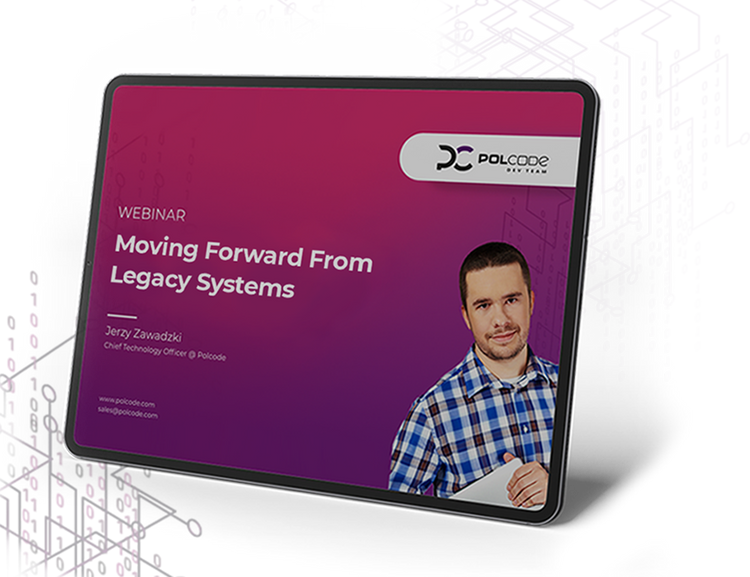
Adobe is redefining Magento with a SaaS-first model - and it could change how e-commerce businesses build online stores. In this article, our CTO Jerzy Zawadzki breaks down what Adobe Commerce as a Service is, who it’s best suited for, and why Magento Open Source isn’t going anywhere just yet.
If you're a tech leader, business owner, or digital commerce strategist navigating platform decisions, this read is for you.

Magento Enters the SaaS Arena: What Adobe Commerce as a Service Means for Your Business
Adobe is redefining Magento with a SaaS-first model - and it could change how e-commerce businesses build online stores. In this article, our CTO Jerzy Zawadzki breaks down what Adobe Commerce as a Service is, who it’s best suited for, and why Magento Open Source isn’t going anywhere just yet.
If you're a tech leader, business owner, or digital commerce strategist navigating platform decisions, this read is for you.
Table of Contents
A Major Strategic Shift
Overview of Adobe’s announcement and its significance for the Magento ecosystem.What Is Adobe Commerce as a Service?
Key features of the new SaaS model, including modular architecture and managed infrastructure.Our Expert Take: A CTO’s Perspective
Insights from Jerzy Zawadzki, CTO at Polcode, on the strategic implications of the move.Who Is Adobe Commerce as a Service For?
Businesses and teams that stand to benefit most from the new model.Who Should Stick with Magento Open Source?
Use cases where the open-source, self-hosted version remains the better fit.The Uncertain Future of Magento Open Source
Discussion around ongoing support, community health, and roadmap concerns.Polcode’s Perspective: Helping You Make the Right Choice
Summary of how Polcode supports businesses in choosing and implementing the right Magento solution.
A Major Strategic Shift
In a significant shift for Magento users and the broader e-commerce ecosystem, Adobe has announced the launch of Adobe Commerce as a Service – a cloud-first, SaaS-like model that changes how e-commerce businesses can build and manage their online stores.
What Is Adobe Commerce as a Service?
This new service introduces a modular, headless architecture:
A cloud-native backend, fully managed by Adobe
A default frontend: Adobe Commerce Storefront, with the option to integrate other frontends
Simplified infrastructure management and scalability
Need Help Navigating the Magento Shift?
Within this setup, Adobe positions Magento as a more agile, scalable, and lower-maintenance solution for businesses that want flexibility without the overhead of self-hosting.
Expert Take: Our CTO's Perspective
“This might be a great option for companies that want to leverage Magento’s flexibility but are ready to hand off infrastructure responsibilities,”
says Jerzy Zawadzki, CTO at Polcode.
“For Adobe to succeed, though, the offering has to be competitive with Shopify, which was built as a SaaS from the ground up.”
In short, Adobe must prove that its new service can offer the same level of convenience, speed, and performance that merchants expect from modern SaaS platforms.
Who Is It For – and Who Should Stay with On-Premise?
Adobe Commerce as a Service might be a good fit for:
Brands looking to reduce time-to-market
Teams seeking less technical overhead
Businesses with standard e-commerce needs that want to focus on customer experience, not infrastructure
However, for companies with complex workflows, legacy system dependencies, or high level of customization, the SaaS model may fall short.
Magento Open Source (on-premise) will remain the best choice for:
Complex B2B platforms
Multi-vendor marketplaces
Auction or booking systems
Projects requiring full customization and control
“Magento Open Source still offers a level of adaptability that’s hard to match,” Jerzy notes. “And that’s critical for platforms that don’t fit into predefined e-commerce patterns.”
What About the Future of Magento Open Source?
As Adobe shifts focus to a SaaS offering, an open question remains:
What happens to Magento Open Source? Will it continue to receive active support, updates, and a clear roadmap?
The developer and merchant community will be watching closely. A strong open-source ecosystem has always been one of Magento’s key differentiators - and its continued health will be crucial for businesses that rely on the flexibility it provides.
Our Take
As a software development partner with deep experience in Magento and custom e-commerce solutions, we see Adobe Commerce as a Service as a positive step - but not a one-size-fits-all solution.
It offers clear benefits for some businesses but not all. For many of our clients, the freedom and customizability of Magento Open Source remain non-negotiable.
We can help you evaluate the options, assess technical fit, and build scalable e-commerce solutions—whether SaaS-based, open source, or fully custom.
On-demand webinar: Moving Forward From Legacy Systems
Want to end legacy codebase misery and learn how to reignite your old IT system? Watch our on-demand webinar hosted by our CTO - Jerzy Zawadzki.

Latest Blog Posts
AI Usage & Safety Policy: Why Responsible AI Needs Rules, Not Assumptions
Feb 11, 2026 by Polcode Team
AI in Software Delivery: How Polcode Builds Predictable, Responsible, AI-Supported Systems
Feb 4, 2026 by Polcode Team
Application and Website Quality Audit: ISO 9001 and ISO 29119 Guide
Jan 22, 2026 by Anton Malinovski
Ready to Explore What’s Next for Your E-commerce Platform?
Let’s Talk
Start with a quick conversation. Tell us about your business, your current setup, and where you're headed.
Get Expert Insights
Our team will assess your technical and business needs, helping you understand whether Adobe Commerce as a Service - or another solution - fits best.
See What's Possible
We’ll walk you through tailored options, from SaaS-based setups to custom builds or Magento Open Source configurations.
Move Forward with Confidence
Partner with Polcode to design, develop, or migrate your e-commerce platform - backed by our Magento expertise and agile approach.

